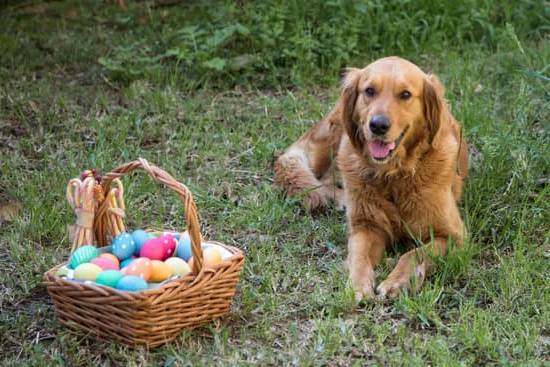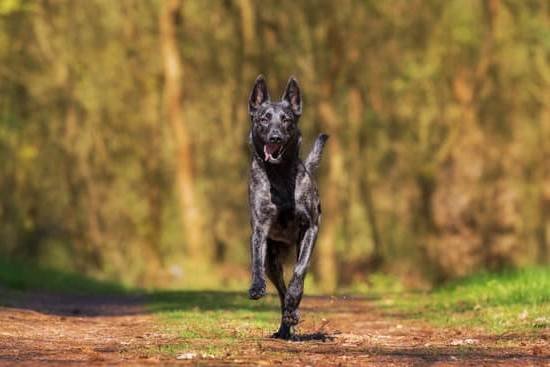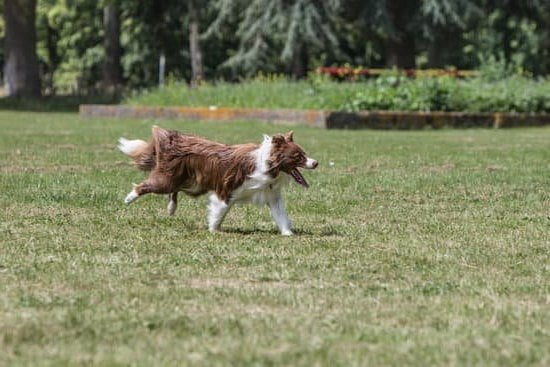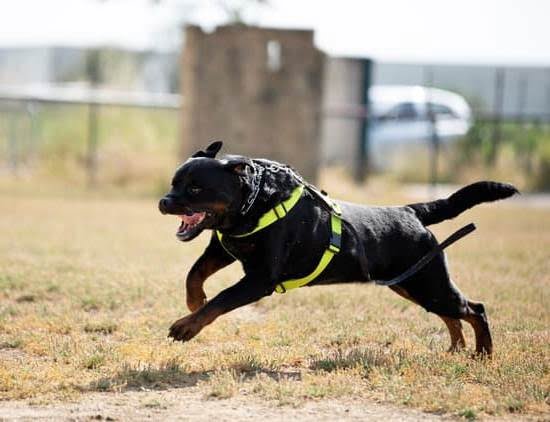House training a dog is a crucial aspect of being a responsible pet owner, but can I house train an older dog? The task may seem daunting, but with the right approach and understanding, it is indeed possible to successfully house train an older dog. In this article, we will explore the challenges, misconceptions, and strategies for house training an older dog, as well as provide tips for overcoming obstacles and achieving success.
When it comes to house training an older dog, there are common misconceptions that can hinder the process. Many people believe that older dogs are set in their ways and cannot be trained, or that they are too old to learn new habits. However, with patience and the right techniques, older dogs can be effectively house trained just like younger ones.
Understanding the challenges of house training an older dog is important in order to develop a successful training plan. Physical limitations and health concerns, behavioral issues and past experiences, as well as lack of previous training or socialization can all impact the process. By assessing the feasibility of house training an older dog and implementing appropriate strategies, it is possible to achieve positive results and create a harmonious living environment with your furry companion.
Understanding the Challenges of House Training an Older Dog
House training an older dog can present several challenges, stemming from physical limitations, behavioral issues, and past experiences. Older dogs may have health concerns that affect their ability to control their bladder and bowels, making house training more difficult. Arthritis, incontinence, and other medical conditions can make it challenging for older dogs to hold it until they can go outside.
In addition to physical limitations, older dogs may also have behavioral issues or past traumas that affect their house training. Dogs that have been previously neglected or abused may have developed unhealthy elimination habits as a result. Similarly, older dogs that have not received proper training or socialization in their earlier years can also struggle with house training due to a lack of understanding about where they should eliminate.
Moreover, the aging process itself can impact a dog’s ability to learn new behaviors and adapt to changes in routine. Cognitive decline and reduced mobility can make it harder for older dogs to understand and follow house training instructions. This means that patience and understanding are essential when undertaking the task of house training an older dog.
Assessing the Feasibility of House Training an Older Dog
As a dog owner, you may find yourself wondering, “Can I house train an older dog?” The good news is that it is entirely possible to house train an older dog, although it may come with its own set of challenges and considerations. In this section, we will discuss the feasibility of house training an older dog and provide valuable insights for those considering taking on this task.
First and foremost, it’s essential to assess the willingness of the older dog to learn new behaviors. While some dogs may be eager and receptive to training, others may be more set in their ways and resistant to change. Additionally, evaluating the time and effort required for training is crucial. House training an older dog can take longer than training a young puppy, so patience and consistency are key.
Another factor to consider when assessing the feasibility of house training an older dog is the impact that age can have on training success. Older dogs may have physical limitations or health concerns that could affect their ability to control their bladder or bowels. It’s important to take these factors into account when determining if house training is a viable option for your furry companion.
Ultimately, while there are certainly challenges involved in house training an older dog, with the right approach and mindset, it can be a rewarding and successful endeavor. Patience, understanding, and a willingness to adapt are essential qualities for any pet owner looking to take on the task of house training an older dog.
| Challenges | Considerations |
|---|---|
| Evaluating the dog’s willingness to learn | Patience and consistency are key |
| The time and effort required for training | Age can impact training success |
| Physical limitations and health concerns | Potential impact on controlling bladder/bowels |
Strategies for House Training an Older Dog
House training an older dog may seem like a daunting task, but with the right strategies and approach, it is certainly possible. One of the most important things to keep in mind when house training an older dog is to be patient and consistent. This process will likely take longer than training a puppy, so it’s crucial to maintain a positive attitude and not get discouraged.
Positive reinforcement and reward-based training are highly effective strategies when house training an older dog. This involves praising and rewarding the dog for using the designated bathroom area outside or on puppy pads indoors. Treats, verbal praise, or toys can be used as rewards to reinforce good behavior. When accidents happen inside the house, it’s important not to scold or punish the dog as this can create fear and anxiety, making house training more difficult.
Establishing a consistent routine and schedule is another key strategy for successfully house training an older dog. Dogs thrive on routine, so taking them out at the same times each day for bathroom breaks can help them understand where and when they should go potty. It’s also important to be patient and understanding of setbacks and accidents. Some older dogs may take longer to grasp the concept of house training, especially if they have never received formal training before.
| Key Strategy | Details |
|---|---|
| Positive Reinforcement | Praising and rewarding good behavior; avoiding punishment for accidents |
| Consistent Routine | Establishing regular bathroom break times; being patient with setbacks |
| Patience and Understanding | Recognizing that older dogs may take longer to learn; not getting frustrated with accidents |
Overcoming Obstacles and Challenges
House training an older dog can be a challenging task, especially when dealing with obstacles and challenges that may arise. It’s important to acknowledge and address these issues in order to effectively train your furry companion. Here are some common obstacles and challenges that you may encounter when house training an older dog:
- Addressing fear, anxiety, and past trauma: Older dogs may have had negative experiences in the past that can manifest as fear or anxiety during the house training process. It’s important to create a safe and comfortable environment for your dog, and to use positive reinforcement to build trust and confidence.
- Dealing with medical issues and physical limitations: Some older dogs may have medical conditions or physical limitations that can make it difficult for them to control their bladder or bowels. Consulting with a veterinarian is crucial in determining the best approach for house training a dog with these challenges.
- Handling stubbornness and resistance to change: Older dogs may be set in their ways and resistant to new routines. Patience, consistency, and understanding are key when dealing with stubborn behavior. It’s important to remain calm and persistent, while also being empathetic towards your dog’s feelings of uncertainty.
These obstacles can make the house training process more complex, but with patience and determination, they can be overcome. It’s essential to tailor your training approach to address these specific challenges while also considering the individual needs of your older dog.
It’s important not to get discouraged when facing these obstacles, as progress takes time. Celebrate small victories along the way and seek support from professionals if needed. With dedication and perseverance, house training an older dog is achievable, even in the face of various challenges.
Tips for Successful House Training
Establishing a Consistent Routine and Schedule
One of the most important aspects of successfully house training an older dog is to establish a consistent routine and schedule. This means taking your dog outside at the same times every day, such as first thing in the morning, after meals, and before bedtime.
By doing this, you are helping your older dog understand when it’s time to go potty and providing them with a predictable routine. Consistency is key in reinforcing good behavior and helping your dog develop good bathroom habits.
Utilizing Training Aids and Tools
There are several training aids and tools that can assist in house training an older dog. For example, using puppy pads or a designated indoor potty area can be helpful for dogs who may have difficulty holding their bladder for extended periods due to age or health issues.
Additionally, utilizing scent attractants on outdoor potty spots can encourage your older dog to go in the appropriate areas. Consider investing in belly bands or diapers for dogs who may have medical conditions that make it difficult for them to control their bladder.
Seeking Professional Help and Guidance if Needed
While it’s entirely possible to house train an older dog on your own, don’t hesitate to seek professional help and guidance if you find yourself struggling or facing unique challenges. Professional dog trainers or behaviorists can provide personalized advice and support tailored to your older dog’s specific needs.
They can help identify any underlying behavioral issues or health concerns that may be impacting your dog’s ability to be successfully house trained. Remember, asking for help is not a sign of failure but rather a proactive step towards ensuring the best outcome for both you and your furry companion.
Realistic Expectations and Patience
House training an older dog can be a challenging process, but it is not impossible. It requires patience, understanding, and a willingness to work with the dog to overcome any obstacles. When embarking on the journey of house training an older dog, it is important to have realistic expectations and be prepared for setbacks along the way.
Understanding That Progress Takes Time
It is crucial for dog owners to understand that house training an older dog takes time and consistency. Older dogs may have ingrained habits or behaviors that can take longer to change. It is important to be patient and persistent in the training process, as progress may be slow but steady.
Managing Frustrations and Setbacks
There will undoubtedly be accidents and setbacks during the house training process. It is important for dog owners to manage their frustrations and not get disheartened by these setbacks. Instead, approach each setback as a learning opportunity and continue working with the dog to reinforce positive behaviors.
Celebrating Small Victories and Improvements
Throughout the house training process, it is essential to celebrate small victories and improvements. Whether it’s a successful trip outside or fewer accidents in the house, recognizing and rewarding progress will help reinforce good behavior in older dogs. This positive reinforcement can motivate them to continue learning and adapting to new habits.
Conclusion
In conclusion, house training an older dog is definitely possible with the right approach, patience, and dedication. While it may come with its challenges, such as physical limitations, behavioral issues, and past experiences, it is important for dog owners to understand that with the right strategies and mindset, success can be achieved.
Positive reinforcement and establishing a consistent routine are essential when house training an older dog. Patience and understanding for setbacks and accidents are also crucial in the process. It’s important to assess the feasibility of house training by evaluating the dog’s willingness to learn and considering the impact of age on training success.
It’s important for dog owners not to lose hope or become frustrated during the process. Seeking professional help and guidance if needed can also greatly benefit both the dog and its owner. Ultimately, celebrating small victories and improvements along the way is key in successfully house training an older dog. With commitment, realistic expectations, and lots of love, any older dog can be successfully house trained.
Frequently Asked Questions
Can a Dog Be Too Old to House Train?
It is possible for a dog to be too old to house train, especially if they have developed medical issues that make it difficult for them to control their bladder or bowels. However, with patience and consistency, even older dogs can learn new habits.
How Do You Potty Train a 10 Year Old Dog?
Potty training a 10-year-old dog requires understanding and patience. Start by establishing a regular schedule for potty breaks, using positive reinforcement, and being diligent about cleaning up accidents. It may take longer than with a young puppy, but with persistence, it can be done.
How Can You Housebreak an Older Dog?
Housebreaking an older dog involves similar techniques as potty training a younger dog. Consistency with feeding times and bathroom breaks, using rewards for good behavior, and closely supervising the dog indoors can all contribute to success. Keep in mind that older dogs may take longer to learn new habits and require more frequent bathroom breaks.

Welcome to the blog! I am a professional dog trainer and have been working with dogs for many years. In this blog, I will be discussing various topics related to dog training, including tips, tricks, and advice. I hope you find this information helpful and informative. Thanks for reading!





